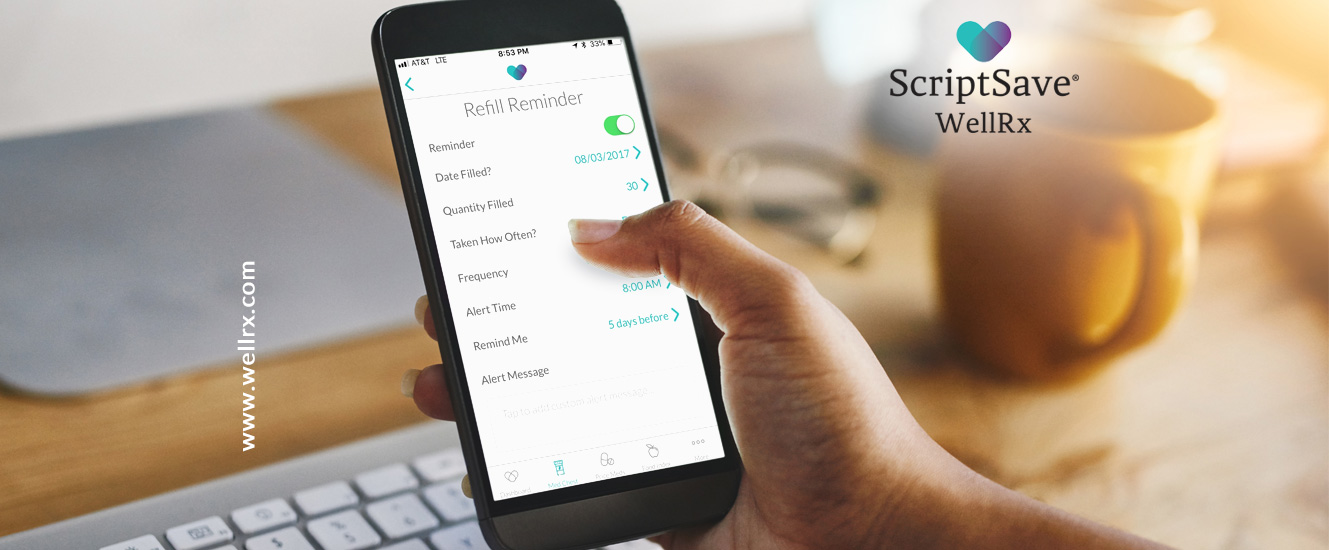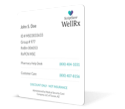What You Need to Know about Drug Interactions
by Dan Johnson, RPh and PharmD,
Vice President of Network Strategy, ScriptSave
March 7, 2019

If you take a prescription medication, you need to be aware of potential interactions. More than 2 million patients are hospitalized every year after they inadvertently mix their prescription drugs, while another 100,000 die annually. And the statistics get worse with age. The chance of an adverse drug reaction for people over 50 jumps 33 percent versus younger people. Here’s what you need to know to keep yourself safe.
What Are Drug Interactions?
An interaction occurs when two substances are taken together and one affects the other’s function. One substance could lower the effectiveness of the other or completely block it from functioning. This can be dangerous for someone with a serious medical condition that needs to be managed with a precise dose of medication. Other substances could increase the concentration of medication in your blood. This increases the risk of overdose.
What Can Interact with My Medications?
Any of these substances can interact with prescription medications:
- Other Rx medications
- Over-the-counter drugs
- Alcohol
- Recreational or illegal drugs
- Certain foods and beverages
- Supplements
You may be aware of drug-drug interactions. The more drugs you take, the greater the risk that some of them will interact with each other. However, many people don’t realize how the things they consume every day could impact their medications.
For example, people who take Lipitor or Zocor with grapefruit juice may experience muscle pain and other side effects. This is an example of a food-drug interaction. Alcohol can be deadly when combined with sleeping pills. And since supplements are not regulated by the FDA, they may not have drug interactions listed on the label.
With all of these potential interactions, you may be feeling overwhelmed. Luckily, there are ways you can stay informed and safe.
How Patients Can Protect Themselves From Drug Interactions
Your healthcare providers are a great resource for your questions about your medications and they will often summarize potential interactions for you. However, there are some steps you can take yourself. Use these strategies to protect against interactions.
Fill All Your Prescriptions at the Same Pharmacy
Ideally, patients should go to the same pharmacist and discuss any other drugs they’re taking. This conversation should include all prescriptions, over-the-counter drugs, supplements, and alcohol or other recreational drugs. If you do go to several different pharmacies or transfer a prescription to a new pharmacy, be sure to have a list of all drugs you take so you can share that with each pharmacist.
Schedule a Comprehensive Medication Review
Some health plans include coverage for medication therapy management services (MTM). These services are provided by a pharmacist to maximize medication effectiveness and safety. MTM may include a comprehensive medication review, which gives patients the chance to sit down with a pharmacist and discuss all the medications and substances they are taking. During this time, you can ask any questions you have about potential side effects and interactions.
Thoroughly Read All Drug Information for Your Prescriptions
Whenever you receive a new prescription, be sure to read the entire label and Medication Guide. This will tell you about any potential interactions. You can also ask your pharmacist about interactions when you fill your Rx.
It’s a good idea to regularly review the information for every drug you’re taking, especially when you start a new prescription.
Know How and When to Take Each Rx
It’s important to take your medications the way your doctor instructed. Sometimes, interactions can be minimized by adjusting your medication schedule. Talk to your doctor and pharmacist about how and when each drug should be taken. If there are any potential interactions, your healthcare providers can find a solution by either tweaking your medication schedule or prescribing a different drug.
Share Information Between Providers
If you see multiple doctors and specialists, your primary care provider may not be getting a complete picture of your health. Be sure to talk to each of your providers about all drugs and supplements you take. Also be sure each provider is authorized to share your medical information with all other providers. This may require you to sign release forms due to the Health Insurance Portability and Accountability Act (HIPAA).
Tell Your Doctor about Any Reactions
As we age, our bodies metabolize drugs slower and at different rates. Because of this, patients should monitor their reactions to any new or existing drugs. Even if you’ve been taking a drug for years without any issues, you could start metabolizing it differently at any time. Always report side effects to your doctor as soon as possible.
Use Technology to Help
Although technology can’t take the place of medical advice from your doctor or pharmacist, it can help you stay organized when it comes to your medical information.
There are many mobile apps that can keep track of your medication regimen and even alert you to potential interactions. The ScriptSave WellRx app includes this capability. Our virtual Medicine Chest warns patients of hazardous drug interactions. It also sends reminders when patients need to take their next pill, or need a refill. If you’re worried about potential drug interactions, we invite you to download our app today and see how it can help you stay informed.
visit www.WellRx.com to compare the cash price at pharmacies near you.
You may find prices lower than your insurance co-pay!
Recommended Articles










